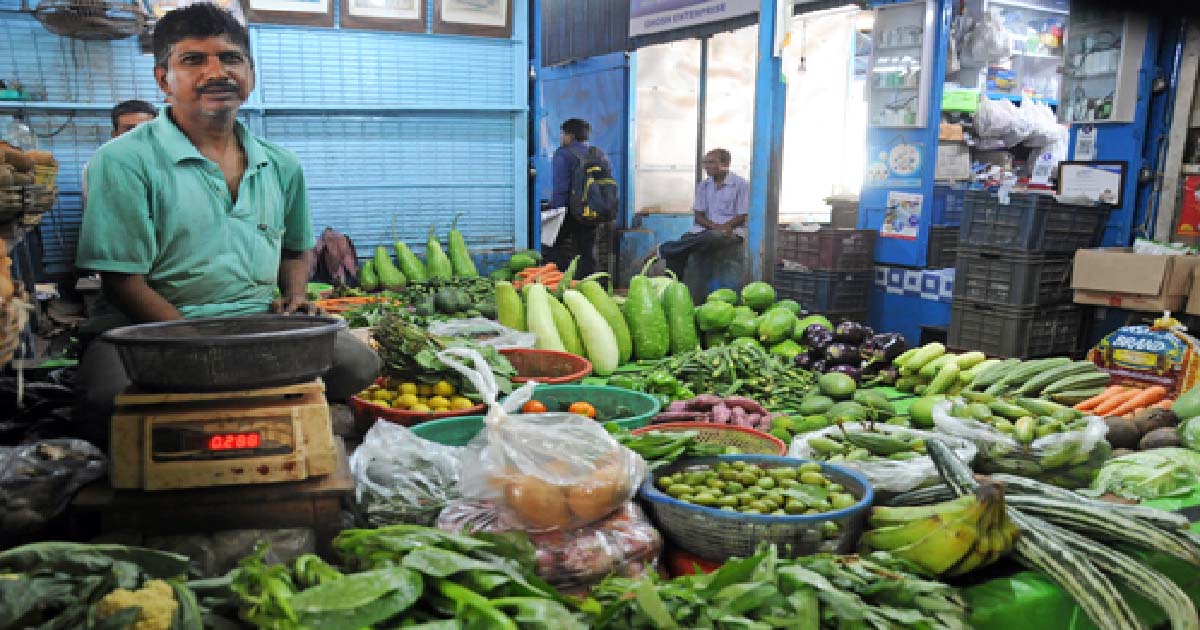Business
India’s air passenger traffic to surpass pre-Covid numbers: Scindia
India’s civil aviation sector has emerged stronger from Covid-19 and passenger traffic will surge to 410 million by 2024-25, surpassing the pre-pandemic numbers, Civil Aviation Minister Jyotiraditya Scindia said on Friday.
Before Covid struck, the passenger throughput (both domestic and international) was 344 million. With international operations set to resume from March 27, the minister exuded confidence that by 2022-23, the number will reach close to 300 million passengers and grow further to 410 million by 2024-25.
The minister was speaking at the inaugural session of Wings India 2022, Asia’s largest civil aviation show being held at Begumpet Airport in Hyderabad.
“I am confident in days to come, when you look at combination of domestic and international passengers, the throughput in India which was close to 344 million passengers in 2018-19 prior to Covid will reach close to 300 million by the year 2022-23 and by by 2024-25 we will surpass 410 million passengers creating a new history in India,” he said.
The minister said the aviation sector has gone through tremendous change during Covid. “The number of air passengers in India in 2018-19 was 140 million but then we got hit by Covid but even through this Covid period between the first wave and the second wave and between the second wave and the third wave if there is one sector which reemerged strongly it is the civil aviation,” he said.
He pointed out that post the second wave the sector recovered to reach close to 3.9 lakh passengers per day against the pre-covid number of close to 4.1 lakh passengers. “We were almost back to pre-Covid numbers but then Omicron came and again those numbers dipped to 1.6 lakh passengers per day. Post third wave numbers have again come back close to 3.83 lakh passengers,” he said.
“I am very confident that our sector in days and months to come with the next year will surpass pre-Covid number of 4.1 lakh passengers per day,” the minister added.
He said the international passengers were close to 60 million in 2018-19 but fell to almost 10 million, “But today I am glad that from day after tomorrow we are opening up 100 per cent of international operations so that India can once again reconnect to the rest of the world.”
Scindia said buildings of airports and other infrastructure powers the economic growth. “Civil aviation has an economic multiplier of 3.1. This means every dollar invested in the area of civil aviation yields economic output of 3.1 dollars. It is also an employment multiplier. The economicA multiplier effect is 1:6.1. It means that every direct employment created in area of civil aviation creates 6.1 indirect jobs. Both in terms of employment and output this is one of the largest employment and output generating sectors in the economy,” he said.
Airports Authority of India (AAI) chairman Sanjeev Kumar said domestic traffic has almost come to pre-Covid level and hoped that with the reopening of international air traffic from March 27, the international sector will also reach pre-Covid level soon. He exuded confidence that the double-digit growth would soon return to Indian aviation sector.
Stating that various stakeholders had paused expansion decisions due to the pandemic during last two years, he said the time has come to resume working on these decisions.
Civil aviation secretary Rajiv Bansal the sector is poised for remarkable growth. He said the growth would be across spectrum of the sector. He said UDAN scheme would be further strengthen to provide air connectivity to tier III and tier IV cities.
Ministers from France, Laos and Nepal and delegations from 22 countries are participating in the four-day event organised jointly by the Ministry of Civil Aviation and the Federation of Indian Chambers of Commerce & Industry (FICCI). Various stakeholders have set up 125 stalls in the exhibition area spread over 8,000 square meters.
Business
Indian stock market ends in bullish tone over hopes of renewed FII inflows

Mumbai, Dec 13: Indian equity benchmarks made marginal losses during the week amid sustained FII outflows and uncertainty surrounding the US-India trade negotiations.
However, the market ended the week in a bullish tone with Nifty surging 0.57 per cent on the last trading day after the US Federal Reserve announced a 25-bps rate cut.
Benchmark indices Nifty and Sensex dipped 0.36 and 0.17 per cent during the week to close at 26,046 and 85,267, respectively.
Indian equities opened the week on a subdued note, amid continued rupee depreciation and negative global cues due to rising Japanese bond yields.
The US Fed rate cut later in the week eased liquidity concerns and fuelled hopes of renewed FII inflows. With supportive central bank policies, steady domestic investments, and optimism over trade progress despite unclear timelines, benchmarks closed the week on a strong note.
India’s year-on-year inflation rate based on the Consumer Price Index (CPI) was estimated at 0.71 per cent for November this year which was marginally higher than the 0.25 per cent in October, according to figures released by the Ministry of Statistics.
Broader indices underperformed, with the Nifty Midcap100 and Smallcap100 down 0.51 per cent and 0.67 per cent, respectively, in a week.
Sectoral performance was mixed, with IT under pressure while PSU banks, real estate and consumer durables witnessed selective buying.
Hrishikesh Yedve, AVP Technical and Derivative Research, Asit C. Mehta Investment Interrmediates, said that Nifty’s weekly chart shows buying interest at lower levels.
Nifty has 26,200 and 26,325 as stiff resistance levels while 25,700 will act as support zone, he added.
Analysts said that markets will likely remain positive in near future but sensitive to rupee stability, FII flow trends, trade agreement clarity, and cues from major central banks abroad.
Amidst risks from currency fluctuations and global trade uncertainties, improving earnings visibility and liquidity support provide a constructive backdrop and downside protection, they added.
Business
Maharashtra on path to becoming GCC hub: CM Fadnavis

Nagpur, Dec 12: Chief Minister Devendra Fadnavis on Friday announced that a crucial milestone has been achieved in the journey to establish Maharashtra as a GCC (Global Capability Centre) Hub.
He said that the Brookfield company is set to build Asia’s largest Global Capability Centre (GCC) in Mumbai, spanning approximately 2 million square feet.
The Chief Minister said that this project is expected to generate a total of 45,000 jobs, including 15,000 direct and 30,000 indirect jobs.
He stated that due to the state’s talent pool, infrastructure, and industry-friendly environment, Maharashtra is becoming a preferred destination for Global Capability Centres.
“The new GCC policy will lead to large-scale skill-based job creation and economic growth,” he added.
He also mentioned that FedEx, a global leader in the logistics sector, is keen to invest in its GCC and other operations near the Mumbai-Navi Mumbai airport area, said the government release.
The Chief Minister informed that he requested Microsoft to consider Maharashtra for their investments, noting that their largest existing investment is already in the state.
He expressed confidence that Microsoft will make a major investment in the future and take the lead in making Maharashtra an Artificial Intelligence (AI) centre.
The Chief Minister said that Maharashtra’s model for crime control with the help of Artificial Intelligence is a guiding light for the entire country.
Chief Minister Fadnavis confirmed that Microsoft has assured priority to Maharashtra in their largest ever investment in India, amounting to $17 billion.
He further highlighted the ‘Marble’ platform developed by Maharashtra, which helps detect cyber and financial crimes in just 24 hours instead of 3-4 months.
He said that this has resulted in saving people’s money and has expedited the process of tracking criminals.
Business
India’s CPI inflation estimated at 0.71 pc for Nov, food inflation stays in negative zone

New Delhi, Dec 12: India’s year-on-year inflation rate, based on the Consumer Price Index (CPI), was estimated at 0.71 per cent for November this year which was marginally higher than the 0.25 per cent in October, according to figures released by the Ministry of Statistics on Friday.
Food inflation stayed in the negative zone during November at (-) 3.91 per cent as prices of food goods fell compared to the same month of the previous year. Food inflation has now stayed negative for the sixth month in a row, easing the burden on household budgets.
However, the increase in headline inflation during November 2025 is mainly attributed to an increase in the inflation of vegetables, eggs, meat and fish, spices, and fuels compared to October, according to an official statement.
The retail inflation had eased further in October, after having plummeted to an over 8-year low of 1.54 per cent in September, as prices of food items and goods across sectors fell during the month.
The declining trend in food prices continued in October as food inflation fell deeper in the negative zone at (-) 5.02 per cent from (-) 2.28 per cent in September.
However, the overall outlook for inflation remains benign.
The RBI’s monetary policy committee (MPC) last week slashed its forecast for India’s inflation rate for the financial year 2025-26 to 2 per cent from 2.6 per cent predicted in October due to the sharp decline in food prices and the GST rate cuts playing out.
RBI Governor Sanjay Malhotra announced a reduction in the repo rate by 25 basis points to 5.25 per cent from 5.5 per cent earlier, as inflation had come down and the monetary policy could focus on boosting growth.
Malhotra said that the surge in economic growth to 8.2 per cent in the second quarter of the current financial year and the sharp decline in inflation to 1.7 per cent had provided a rare “Goldilocks period” for the Indian economy.
“The MPC noted that headline inflation has eased significantly and is likely to be softer than the earlier projections, primarily on account of the exceptionally benign food prices. Reflecting these favourable conditions, the projections for average headline inflation in 2025-26 and Q1:2026-27 have been further revised downwards.”
Malhotra also pointed out that core inflation (which excludes food and fuel) remained largely contained in September-October, despite continued price pressures exerted by precious metals. Excluding gold, core inflation moderated to 2.6 per cent in October. Overall, the decline in inflation has become more generalised, he added.
The RBI Governor observed that food supply prospects have improved on the back of higher kharif production, healthy rabi sowing, adequate reservoir levels and conducive soil moisture. Barring some metals, international commodity prices are likely to moderate going forward.
-

 Crime3 years ago
Crime3 years agoClass 10 student jumps to death in Jaipur
-

 Maharashtra1 year ago
Maharashtra1 year agoMumbai Local Train Update: Central Railway’s New Timetable Comes Into Effect; Check Full List Of Revised Timings & Stations
-

 Maharashtra1 year ago
Maharashtra1 year agoMumbai To Go Toll-Free Tonight! Maharashtra Govt Announces Complete Toll Waiver For Light Motor Vehicles At All 5 Entry Points Of City
-

 Maharashtra1 year ago
Maharashtra1 year agoFalse photo of Imtiaz Jaleel’s rally, exposing the fooling conspiracy
-

 National News1 year ago
National News1 year agoMinistry of Railways rolls out Special Drive 4.0 with focus on digitisation, cleanliness, inclusiveness and grievance redressal
-

 Maharashtra1 year ago
Maharashtra1 year agoMaharashtra Elections 2024: Mumbai Metro & BEST Services Extended Till Midnight On Voting Day
-

 National News1 year ago
National News1 year agoJ&K: 4 Jawans Killed, 28 Injured After Bus Carrying BSF Personnel For Poll Duty Falls Into Gorge In Budgam; Terrifying Visuals Surface
-

 Crime1 year ago
Crime1 year agoBaba Siddique Murder: Mumbai Police Unable To Get Lawrence Bishnoi Custody Due To Home Ministry Order, Says Report














